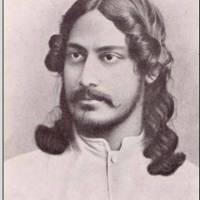Blog Archives
Freedom
Posted by Agnivo Niyogi
Now we are free
The sky waits for us
No cage to hold us back
The wings soar high
A bullet flies past
A drop of blood
The pull of gravity
weighs more than the spirit
Back to the cage
the skies mock me
The trees urge me to break free
I try….. but fail.
Then one night,
Hope comes to me
I fly into your arms
I am finally free

P.S. I am taking my Alexa rank to the next level with Blogchatter. This is my third post.
DISCLAIMER: All Images Used In This Post Have Their Respective Copyrights
Posted in poetry
Tags: 377, blog, Blogchatter, blogchatter projects, blogging, decriminalize, Delhi High Court, freedom, gay, gay rights, gays, GOI, government, homo, Homosexual, Homosexuality, India, indian culture, IPC, judiciary, LGBT, Love, petition, Poetry, Queer, Section 377
Decriminalising homosexuality – Help my voice reach the GOI
Posted by Agnivo Niyogi
On July 2, 2009, the Delhi High Court declared Section 377 of the Indian Penal Code unconstitutional, thereby, giving a new ray of hope to millions of Indians who were stigmatized for their sexuality. The section, which criminalized consensual sex between two adults of the same-sex, was grossly misused by the police to target and victimize homosexuals. With 377 gone, it was a dawn of freedom for the LGBT community in India.
However, on December 11, 2013, the Supreme Court overturned the Delhi High Court verdict, thereby declaring lakhs of Indians criminals in their own country, solely for their ‘choice’ of love. The decision of a legislation to decriminalise homosexuality was left the Parliament of India.
The judiciary is the custodian of human rights, and has the mandate to make decisions in the interest of the public. But Justice Singhvi adjudged that annulling Section 377 of the IPC for a “minuscule minority” is improper. Well, the Constitution of India warrants that no matter how minuscule a minority is, their rights must be protected.
Article 21 of the India Constitution includes right to privacy also in its sweep which was upheld by our Hon’ble SC in Kharak Singh v State of UP for the first time. The Supreme Court held that right to privacy is an essential ingredient of right to personal liberty.
While a common case against decriminalizing homosexuality is that it is “unnatural”, people forget that nearly 500 species on animals show homosexual tendencies. How can a trait so abundantly occurring in nature be “unnatural”?
There is also a class of people who say homosexuality is against Indian culture. That is definitely not the case. The controversial Section 377 of the IPC is a British law that was introduced in the Victorian period. In fact, Indian scriptures and epics are replete with queer characters (the most common being Shikandi from Mahabharata).
The American Anthropological Association stated in 2004: “The results of more than a century of anthropological research on households, kinship relationships, and families, across cultures and through time, provide no support whatsoever for the view that either civilization or viable social orders depend upon marriage as an exclusively heterosexual institution. Rather, anthropological research supports the conclusion that a vast array of family types, including families built upon same-sex partnerships, can contribute to stable and humane societies.”
Several countries in the world recognize same-sex marriage: Argentina, Australia, Belgium, Brazil, Britain, Canada, Colombia, Denmark, Finland, France, Germany, Greenland, Iceland, Ireland, Luxembourg, Netherlands, New Zealand, Norway, Portugal, South Africa, Spain, Sweden, Uruguay and the United States.
I, therefore, feel, it is about time we shed the colonial baggage, decriminalizing a private and consensual act between two consenting adults. It is time we modified Section 377 of IPC to decriminalize homosexuality.
Let every human being live a life of dignity, irrespective of their gender, sexuality, caste, religion or colour – just as the Constitution of India mandates.
Sign the petition by clicking here.
P.S. This is my first post for #BlogchatterProjects
DISCLAIMER: All Images Used In This Post Have Their Respective Copyrights
Posted in Social Issues
Tags: 377, blog, Blogchatter, blogchatter projects, blogging, decriminalize, Delhi High Court, gay, gay rights, gays, GOI, government, homo, Homosexual, Homosexuality, India, indian culture, IPC, judiciary, LGBT, Love, petition, Queer, Section 377







